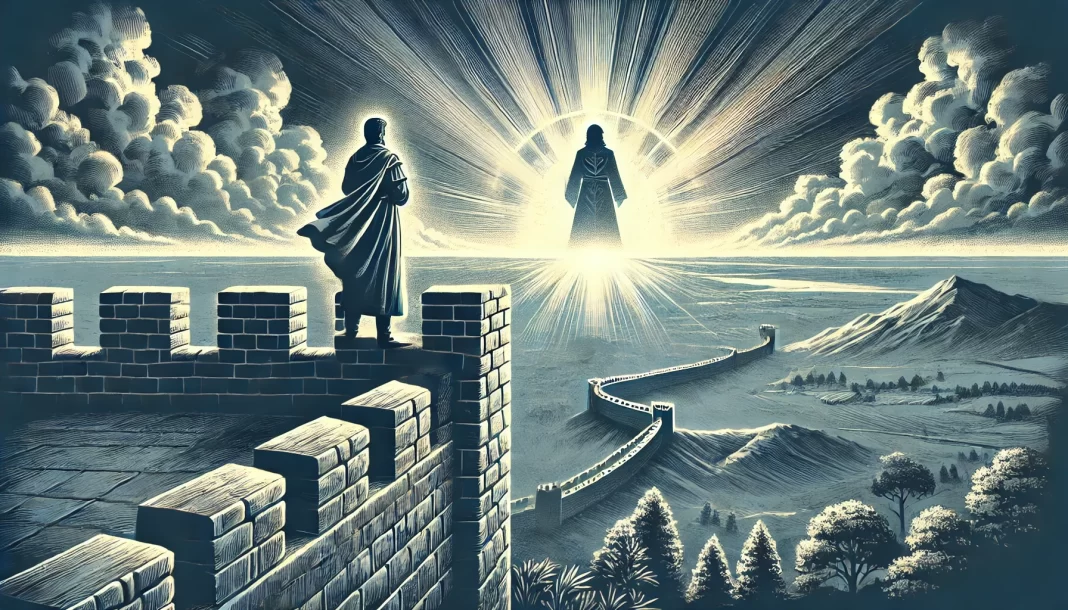Throughout history, certain voices have stood as sentinels, calling for vigilance, reform, and faithfulness to higher ideals. One such voice is that of John Calvin, whose teachings continue to inspire the phrase “Watchmen on the Wall.” But what does it mean to be a watchman, and how does Calvin’s theology inform this idea? In this blog, we’ll explore the origins, significance, and enduring relevance of this concept in today’s world.
Who Are the Watchmen on the Wall?
The term “Watchmen on the Wall” originates from the Bible, particularly in Ezekiel 33:6, where the prophet describes a watchman’s role in sounding the alarm when danger approaches. Watchmen were responsible for protecting cities by staying alert and warning people of impending threats.
In a spiritual context, the watchman is someone called to be vigilant, to guide others, and to uphold truth and righteousness. Calvin’s interpretation of this role highlights the importance of faith, responsibility, and accountability in both personal and communal life.
Calvin’s Perspective on Watchmen
A Call to Vigilance
For Calvin, being a watchman was not just a passive role—it was an active and demanding responsibility. He believed that spiritual leaders, much like the ancient watchmen, had a duty to protect their communities from moral and spiritual decay. Calvin emphasized that this vigilance required deep faith, courage, and a commitment to God’s word.
Responsibility and Accountability
Calvin’s theology placed a strong emphasis on personal responsibility. He taught that individuals, particularly those in positions of leadership, would be held accountable for the well-being of their community. This idea resonates deeply with the role of a watchman, who must warn others even when it’s difficult or unpopular.
How Calvin’s Teachings Shape the Modern Understanding
Leadership and Integrity
In today’s world, Calvin’s concept of the watchman can be applied to leaders in various fields—spiritual, political, or social. True leadership, according to Calvin, requires unwavering integrity and a willingness to prioritize the common good over personal gain.
Speaking Truth to Power
Another enduring lesson from Calvin’s theology is the courage to speak truth to power. The watchman’s role often involves challenging injustice and advocating for righteousness, even when it comes at a personal cost.
The Role of Watchmen in the Church
Protecting Against False Teachings
One of the watchman’s primary duties is to guard against false teachings and ensure that the church remains rooted in biblical truth. Calvin often warned of the dangers of straying from Scripture, emphasizing the need for vigilance in maintaining doctrinal purity.
Encouraging Spiritual Growth
Beyond guarding against threats, watchmen also play a proactive role in fostering spiritual growth. Calvin believed that spiritual leaders should guide their communities toward deeper faith and understanding, serving as mentors and role models.
Lessons from Calvin’s Watchmen for Today
Staying Alert in a Distracted World
In a world filled with distractions, the watchman’s call to vigilance is more relevant than ever. Calvin’s teachings remind us of the importance of staying focused on what truly matters—our faith, our values, and our responsibilities to others.
Embracing Accountability
Accountability is a cornerstone of Calvin’s theology. Whether in our personal lives or in positions of leadership, we are called to take responsibility for our actions and their impact on others.
Courage in the Face of Opposition
Being a watchman is not always easy. Calvin’s life and teachings demonstrate the courage it takes to stand firm in one’s beliefs, even when faced with opposition or criticism.
New Insights into Watchmen on the Wall
While many interpretations of “Watchmen on the Wall” focus on its spiritual implications, Calvin’s perspective also offers practical lessons for everyday life. His emphasis on accountability, vigilance, and integrity can inspire individuals in various roles—parents, teachers, community leaders, and beyond—to embrace the watchman’s call.
Additionally, Calvin’s teachings challenge us to think about how we can be watchmen in our own lives. Are we staying vigilant in protecting what we hold dear? Are we speaking out against injustice and standing up for what’s right? These questions are just as relevant today as they were in Calvin’s time.
Final Thoughts: Why Calvin’s Watchmen Still Matter
The concept of “Watchmen on the Wall” is not just a relic of the past—it’s a timeless call to action. Calvin’s interpretation of this role reminds us of the power of vigilance, the importance of accountability, and the courage it takes to lead with integrity.
Whether you’re a spiritual leader, a community advocate, or simply someone striving to make a difference, the watchman’s example offers inspiration and guidance. As Calvin taught, we are all called to be watchmen in our own way, standing guard over our values and protecting the things that truly matter.
Let’s take up that mantle and carry it forward with faith and courage.



